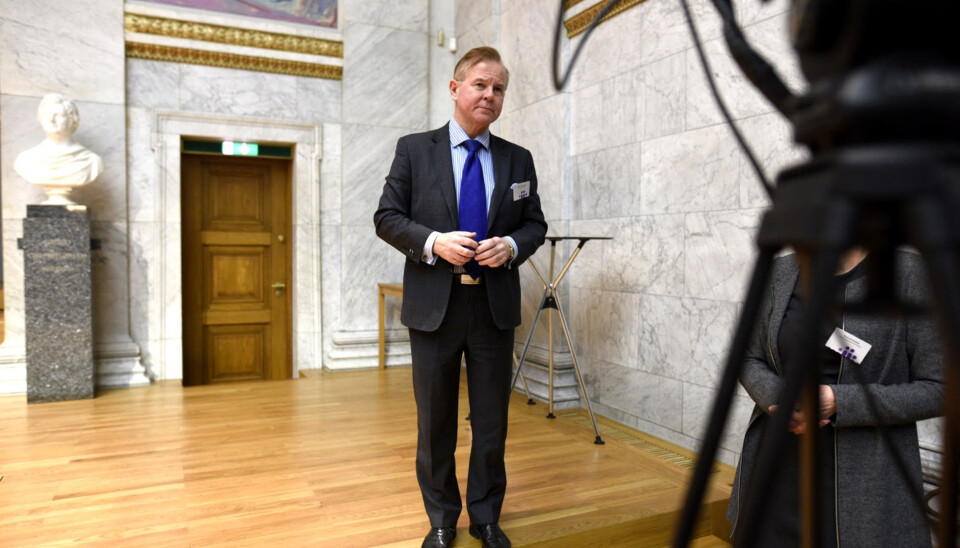
Hopes that Students at risk can be made permanent
The Students at Risk program is still in a pilot stage. Rector at the University of Oslo, Ole Petter Ottersen, hopes that this program can be made permanent.
OBS! Denne artikkelen er mer enn tre år gammel, og kan inneholde utdatert informasjon.
Students at Risk (StAR) is a program in support of students that have been politically persecuted and deprived of their right to study because of their political views and engagement. Under the StAR program, such students are given the opportunity to complete their education abroad. The program was initiated by student organizations in Norway in 2012 and has been funded by the Norwegian Ministry of Foreign Affairs. This weekend, students at risk from several countries and continents gather here in Oslo, in a meeting hosted by SAIH.
Academic freedom is the lifeblood of learning, but is also the bedrock of society. In Norway, as in many other countries, academic freedom is protected by law, and our ethical guidelines state that scholars should publish their results and conclusions «even if they run against adopted policy». Embedded in this statement lies the understanding that society benefits from critique, and that progress is driven by students and academics that challenge dogmas and ideologies and question the views and prejudices of those in power.
Sadly, this understanding does not pervade the world at large. Richness of perspectives and voices that speak truth to power are core elements of the recipe for progress, but are not universally recognized as such. By collective action we need to embed the norm that academic freedom should be safeguarded in situations of political unrest, and that higher education institutions should be protected in times of conflict and war. Suppressing freedom of expression impacts societies and halts progress to an extent that cannot easily be fathomed.
The Scholars at Risk and Students at Risk programs are backed and sponsored by Norwegian higher education institutions. Due to conflicts and political unrest and the emergence of authoritarian regimes on several continents including our own we see a dire need for the support that these programs can offer. Consequently, in its last meeting the Board of the University of Oslo allocated an extra 3 million NOK to our work for scholars at risk. This represents a welcome increase in our capacity to host and support academics that are persecuted due to their views or their fight for democracy and human rights.
Norway should continue to spearhead the Students at Risk and Scholars at Risk programs, and should take the lead in providing sanctuaries for students and scholars who are put in danger solely because of the ideas that they expose. These programs benefit the individual students and scholars involved, but they also send a strong signal to those regimes that suppress or curtail the freedoms that are at the very core of progress and human development.
This weekend, students at risk from several countries and continents gather here in Oslo, in a meeting hosted by SAIH.
The Students at Risk program is still in a pilot stage. On October 5th we received the good news from the Norwegian Centre for International Cooperation in Education (SIU) that there will be a third round of admissions for Students at Risk. At the gathering this weekend we will enter into discussions with SIU and the Ministry of Foreign Affairs on the evaluation of the StAR-pilot and the future design of the program.
I do hope that this program can be made permanent. I know that my hopes are shared by the Norwegian Students’ and Academics’ International Assistance Fund (SAIH) and by the National Union of Students in Norway (NSO). We have seen that the program works, and we sadly realize that it will be in high demand in the years to come – given the geopolitical challenges that we currently face even on our own continent.






Logg inn med en Google-konto, eller ved å opprette en Commento-konto gjennom å trykke på Login under. (Det kan være behov for å oppdatere siden når man logger inn første gang)
Vi modererer debatten i etterkant og alle innlegg må signeres med fullt navn. Se Khronos debattregler her. God debatt!